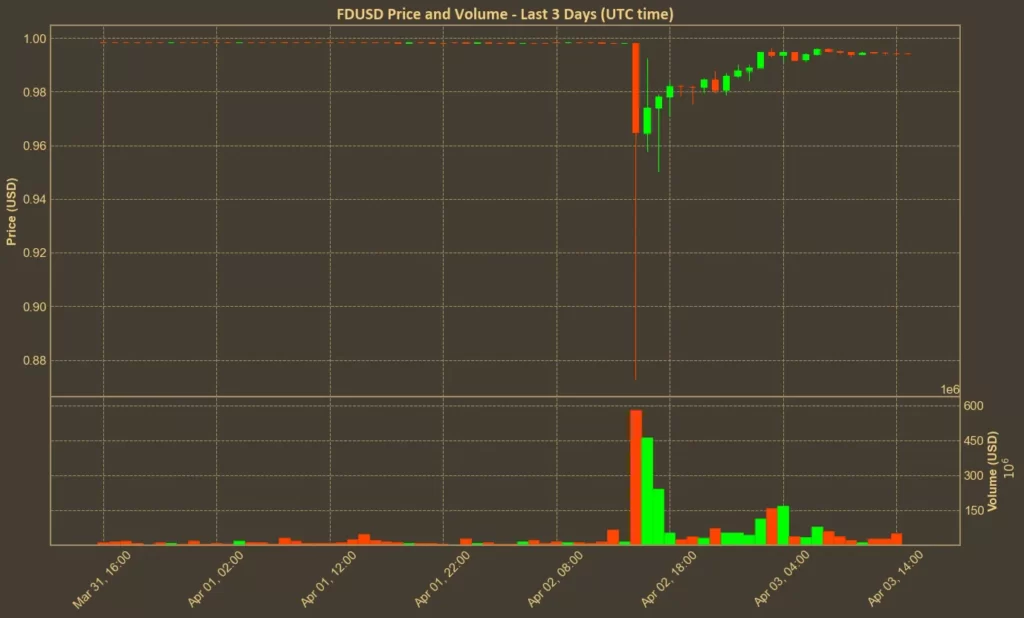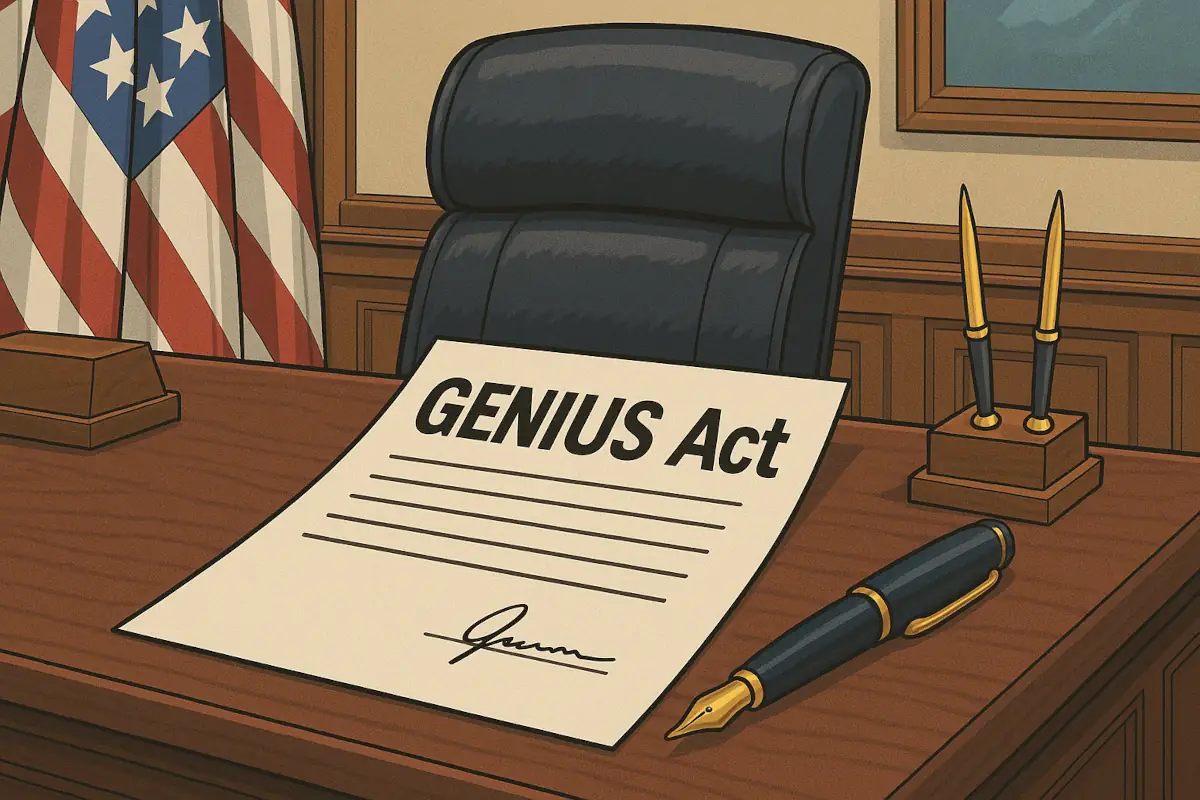FDUSD, a stablecoin linked to Hong Kong-based First Digital Trust, slid nearly 9% after Tron founder Justin Sun made a bold accusation. He publicly claimed that First Digital Trust was effectively insolvent and could no longer fulfill redemption requests from its clients.
Justin Sunpost on X led to an immediate shake-up in FDUSD’s value, wiping out around $130 million from its market capitalization in just hours. While the stablecoin has since recovered most of its losses, it still trades near $0.994 at the time of writing – less of its intended $1 peg.
Table of Contents
Sun’s Insolvency Claims Trigger 9% FDUSD Drop
Sun’s warning came in response to CoinDesk’s article that detailed a lawsuit filed by Techteryx, the company behind the TrueUSD (TUSD) stablecoin. He said:
“First Digital Trust (FDT) is effectively insolvent and unable to fulfill client fund redemptions. I strongly recommend that users take immediate action to secure their assets.”
Right after this statement surfaced, panic followed. The market cap of FDUSD plunged sharply, and the value briefly hovered at 91 cents per dollar. That dip marked one of the most significant slips in recent stablecoin memory, especially for a coin previously considered relatively safe in the industry.

In the aftermath, First Digital Trust fired back. Through their official X account, they denied all allegations and called Sun’s claims “completely false.” They said the issue had nothing to do with FDUSD.:
What’s Behind the $456 Million Hole
The roots of the dispute date back to Techteryx’s 2023-2024 financial troubles, which have now come to light through Hong Kong court filings. The company revealed a staggering $456 million shortfall in its balance sheet, caused by illiquid investments that locked away TUSD reserves. The revelation painted a worrying picture of the back-end operations of stablecoins.
Techteryx had originally taken over TrueUSD from its prior issuer, TrueCoin, in December 2020. Soon after the acquisition, the firm appointed First Digital Trust to manage the reserves. The funds were meant to be invested in the Aria Commodity Finance Fund (CFF), but instead, a massive chunk was routed into a Dubai-based firm named Aria Commodities DMCC – an entity not authorized under the original agreement.
That move cost Techteryx dearly. The redirected funds were poured into speculative and slow-moving global projects, including mining ventures and renewable energy assets. Once the investments soured and Techteryx tried to get its money back, there was little to show.
Redemptions Denied, Allegations Escalate
Court documents showed that between mid-2022 and early 2023, Techteryx struggled to pull its money from Aria CFF. Payments were missed, redemptions were refused, and liquidity dried up. At that point, Justin Sun stepped in, offering emergency funds in the form of a loan, temporarily stabilizing the situation.
But the problems went deeper. Techteryx accused First Digital CEO Vincent Chok of rerouting $15.5 million in undisclosed commissions to a shell entity named “Glass Door.” On top of that, another $15 million in loans went to Aria DMCC, which were misrepresented as standard investments.
Techteryx didn’t mince words. The company labeled the activity “blatant misappropriation and money laundering”. These accusations were part of the official lawsuit documents filed in Hong Kong. However, Chok denied wrongdoing, saying First Digital acted strictly under Techteryx’s guidance.
What Went Wrong With Oversight and Risk
Justin Sun used the moment to call out wider issues in Hong Kong’s financial regulation. He stated, “There are significant loopholes in both the trust licensing process in Hong Kong and the internal risk management of its financial system”. He asked local authorities to intervene quickly to prevent more damage.
Meanwhile, Matthew Brittain, head of the Aria Group, countered Techteryx’s accusations. He said the investment terms were spelled out clearly and that Aria CFF was never designed for stablecoin-related funds. According to him, Aria funds support commodity traders and infrastructure projects – ventures far from the instant liquidity demands of a stablecoin.
With both sides digging in, one thing was clear: transparency had taken a hit, and the fallout reached well beyond these firms.
Sun Promises More, Eyes on Hong Kong
In a closing note on the situation, Sun said he would share more about Techteryx’s lawsuit in a press conference set for Thursday. His message was sharp:
“Hong Kong’s reputation as a global financial center is at stake, and similar financial fraud incidents must never happen again.”
The question hanging over all this is whether FDUSD can recover its peg for good – or whether this episode will drag on, leaving investors wary. As of now, FDUSD’s recovery is ongoing, but the damage to its credibility may take much longer to heal.
Read also: Tether Is Preparing First Full Audits For USDT Transparency




